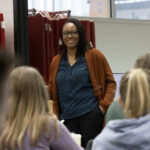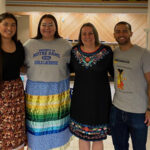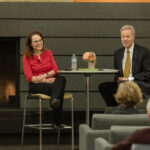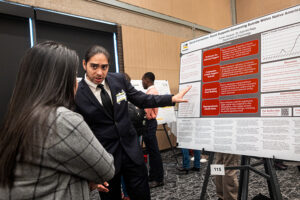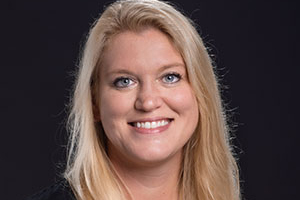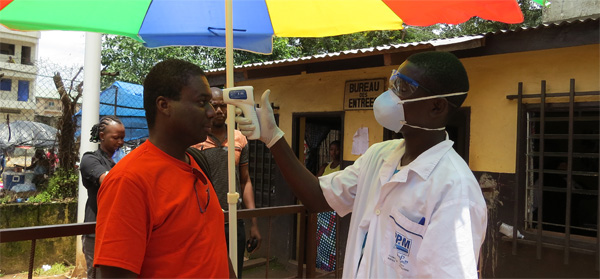
For Aaron Buseh, the Ebola virus outbreak in West Africa is personal.
Buseh, an associate professor in the University of Wisconsin-Milwaukee College of Nursing (CON) and expert on global public health, grew up in Liberia, one of the countries affected by Ebola.
“When I get home from work at UWM every day, I check my voicemail wondering if this will be the day that I get that dreaded call that a family member or a friend is infected or has died from Ebola,” he says.
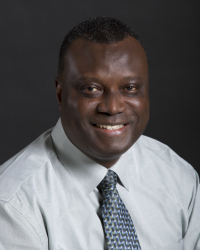
His first instinct was to get on a plane and help. “The faces of agony and hopelessness shown on U.S. television and the people being talked about in the media – these are my people.”
But since he cannot be in Liberia at this time, Buseh is using his expertise in global public health and health systems research to educate and inform the public and policymakers, advocating for sound public health policy decision-making based on scientific evidence and cultural understanding.
He recently completed an article about the massive health challenges and learning opportunities the Ebola outbreak presents to the international community for the journal Nursing Outlook. Co-authors are Buseh’s colleagues: Professor Patricia Stevens, CON biostatistician Sheryl Kelber and Mel Bromberg, principal consultant, WaterSHED international.
21st century leprosy
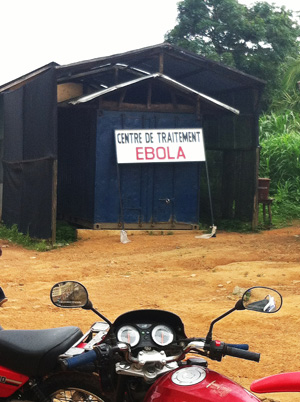
“Ebola has become the leprosy of the 21st century,” Buseh says of this deadly infectious disease that frightens on a global scale and stigmatizes those it touches.
Rebuilding and strengthening health care systems in West Africa to prevent and control the disease is vital, he says. Otherwise, even if a vaccine or treatment is discovered and resources are bolstered through foreign aid or donor networks, it will be difficult to stop the spread of the disease.
“The fight over containment of the Ebola disease is really a fight against time, and it is no longer on the side of the affected countries and their vulnerable public health systems,” Buseh says.
Worst-case scenarios from the U.S. Centers for Disease Control and Prevention predict that Ebola cases in Liberia and Sierra Leone could total 1.4 million by the end of January 2015.
Strengthening health systems will be challenging. The three nations most impacted by the disease – Liberia, Sierra Leone and Guinea – recently emerged from damaging civil wars. And, as in many sub-Saharan countries, entrenched poverty, lack of clean water, poor living conditions and endemic neglected diseases complicate the situation.
Disease thrives where infrastructure is compromised
With poor public health infrastructures in affected countries, the fight against Ebola becomes an even more difficult task. Early diagnosis of Ebola is vital, but Liberia has only two laboratories that can do the tests. (In early October, the U.S. announced it was sending two mobile labs.)
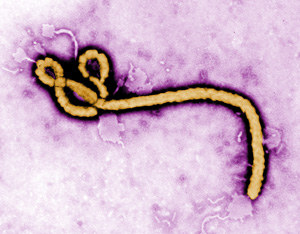
And while healthcare workers have worked tirelessly and many have lost their lives in caring for patients, the workforce is small compared to the need. In Liberia, there is only one doctor for every 14,000 people (compared to 25 per 10,000 in the U.S.)
To rebuild and expand health systems will require strong public-private collaborations among the affected countries themselves and the international community, says Buseh. “The international community is bolstering resources, which is good, but sustained funding for prevention and management of those who have already contracted the virus is needed.”
Efforts also have to be sensitive to the culture and enlist the support of people in the countries affected, he adds. Village elders, traditional healers, respected women leaders and young people all need to be involved in prevention and education. The elders and community leaders are reservoirs of knowledge in many African cultures, he says. Information needs to be delivered from these trusted locals and in ways the people can understand.
Trust, technology and testing are key
Although the Ebola outbreak in West Africa is unprecedented, this outbreak gives the international community an opportunity to work together to figure out ways to address infectious diseases in resource-poor settings, using new technology and public-private partnerships to research, develop and test possible vaccines and treatment, says Buseh.
It is important, he adds, that representatives of the nations affected are at the table during these discussions.
“Trust will be an important factor to consider as vaccines are developed and tested for efficacy on local populations. Although there is urgency, we must design and implement such research cautiously, ensuring that it is conducted ethically and that any potential harms are carefully weighed against potential benefits to the local population,” says Buseh.
“Any mishap from vaccine trials on local populations will only serve to deepen their suspicion and mistrust about modern medicine, and about local and foreign healthcare workers – even if such studies are well-intentioned.”
The Ebola outbreak in West Africa is a global public health issue. After all, Buseh adds, as President Barack Obama told the U.N. General Assembly: “It’s easy to see this as a distant problem – until it is not.”
Says Buseh: “Today it is Ebola in West Africa. Tomorrow it could be another disease in another sub-Saharan country or Latin America, Asia or even the U.S. How can we risk not caring about what is happening in these developing countries?”
For frequently updated information about the Ebola outbreak, visit:

